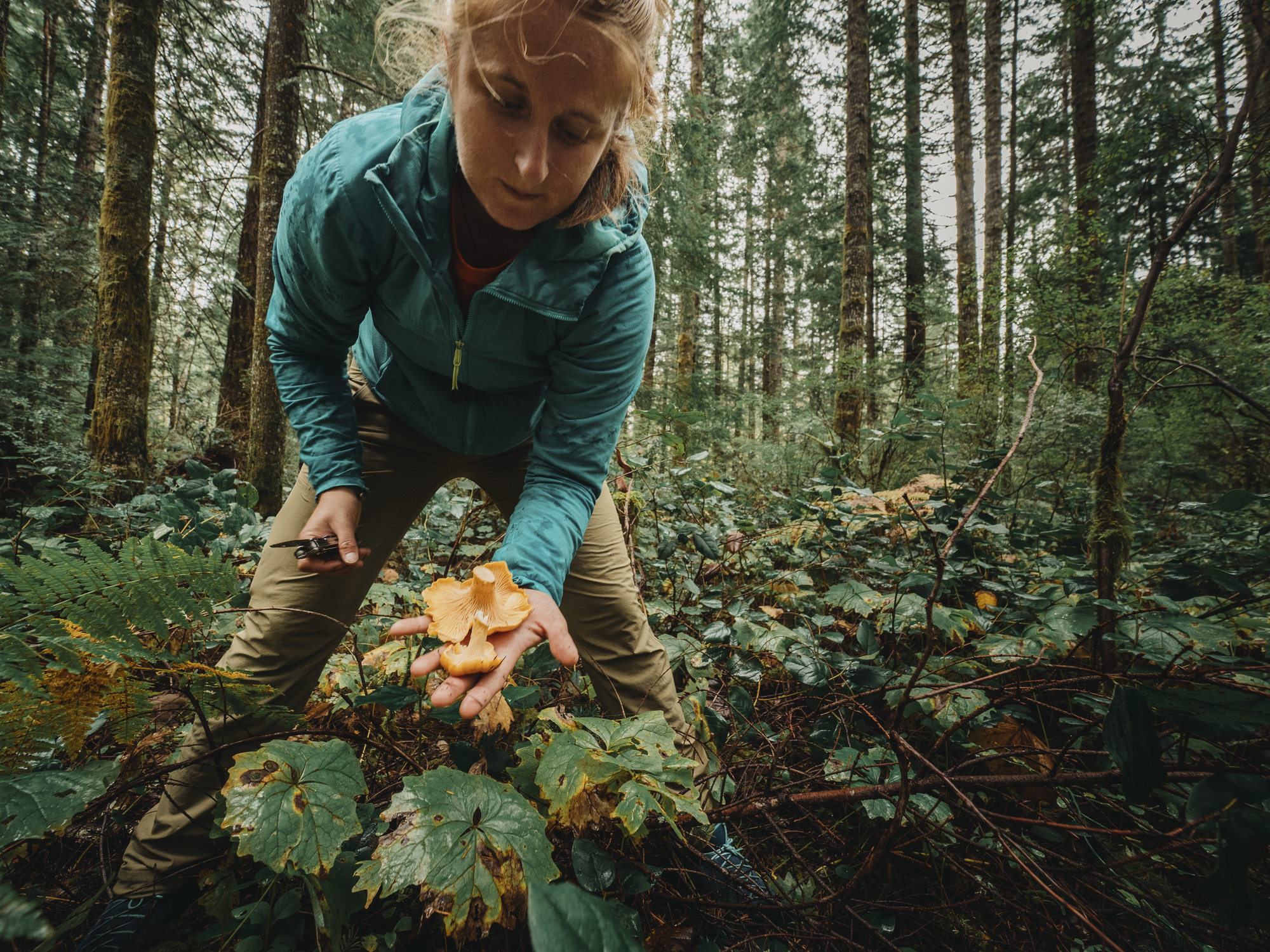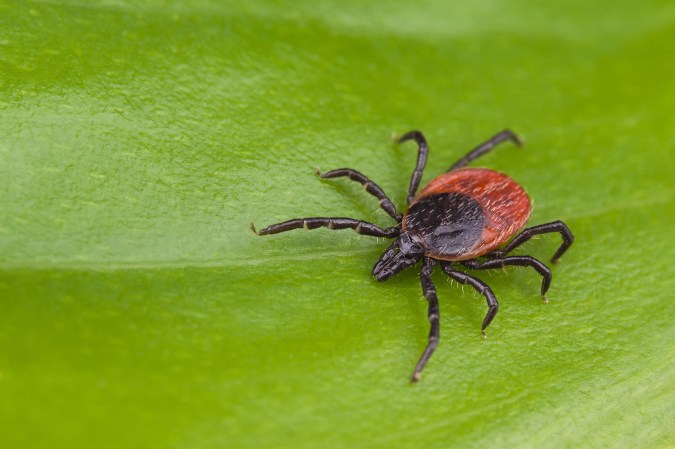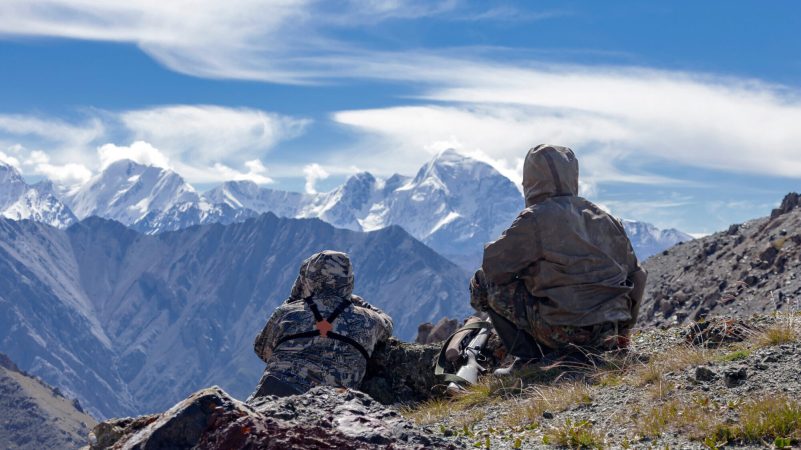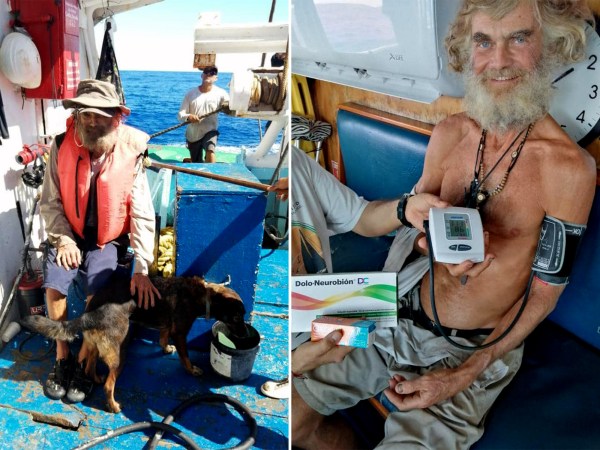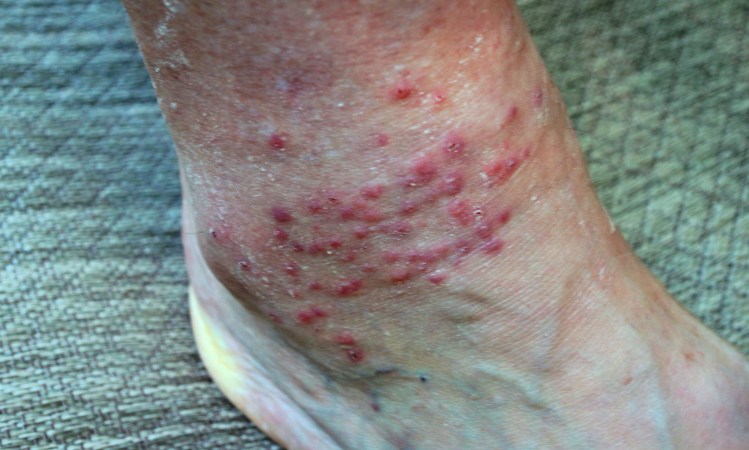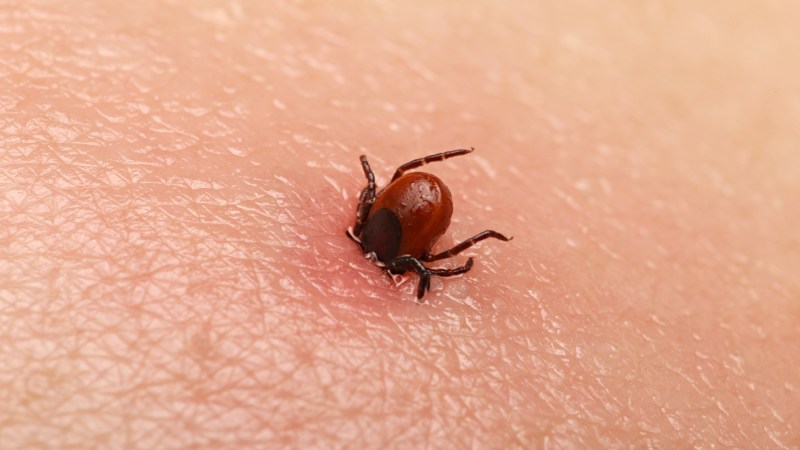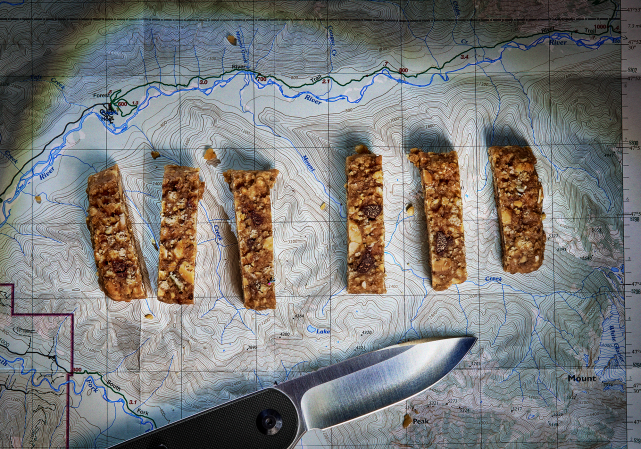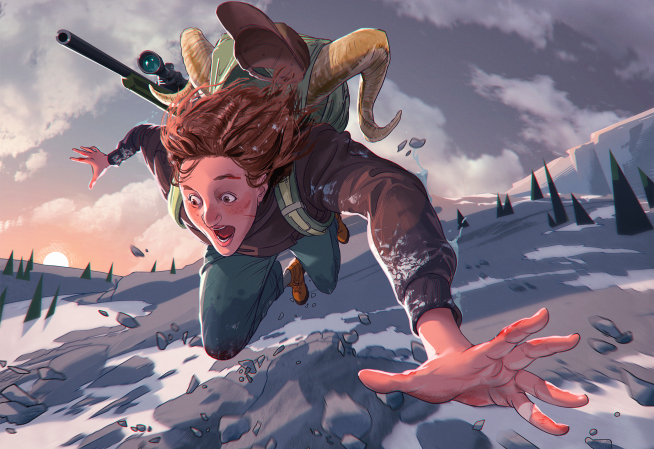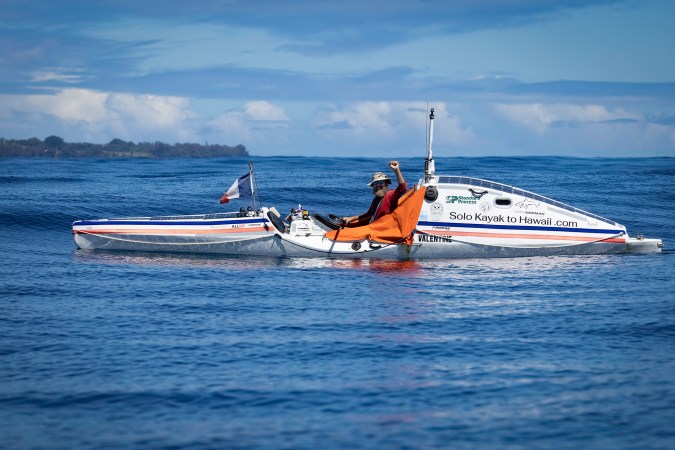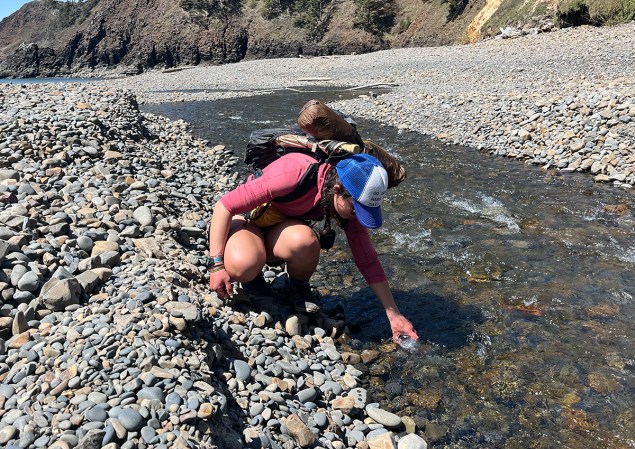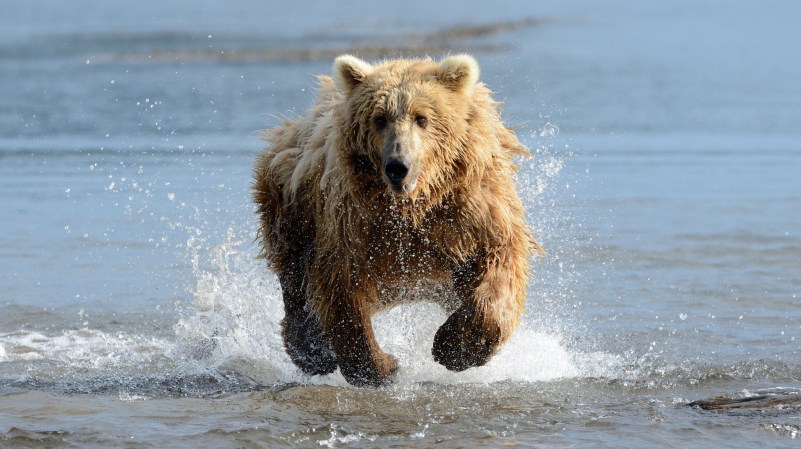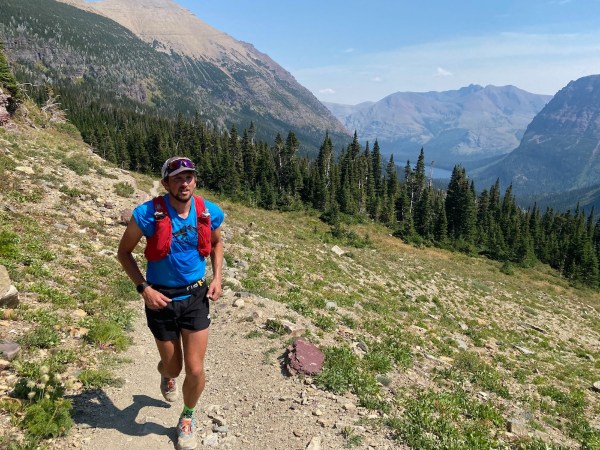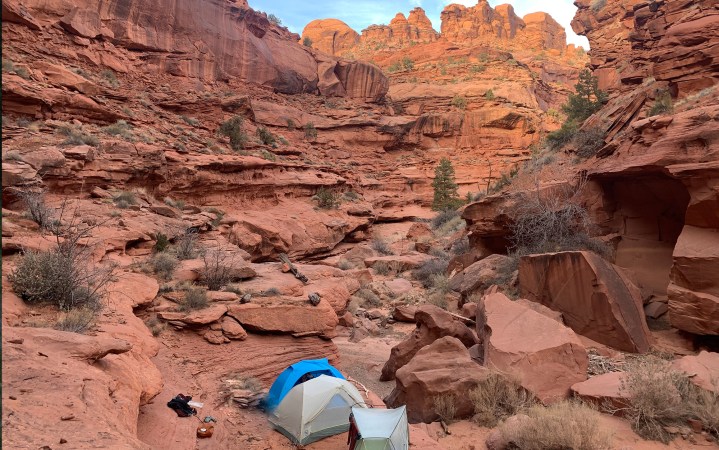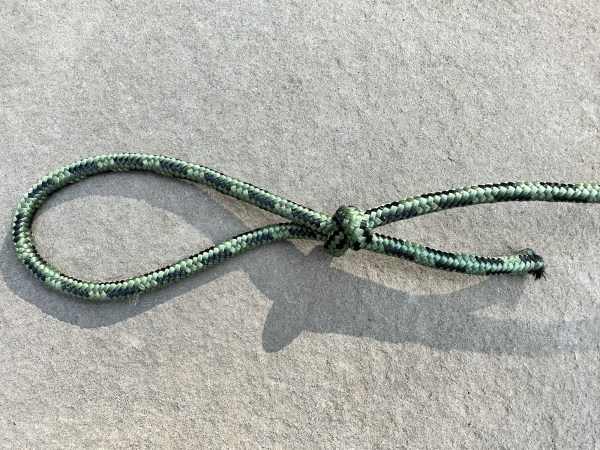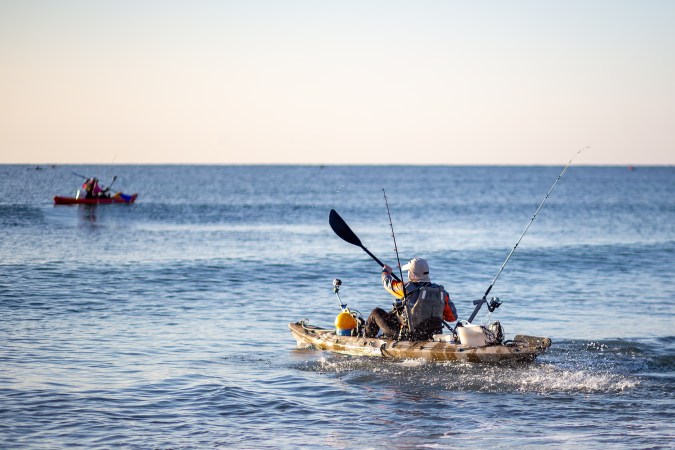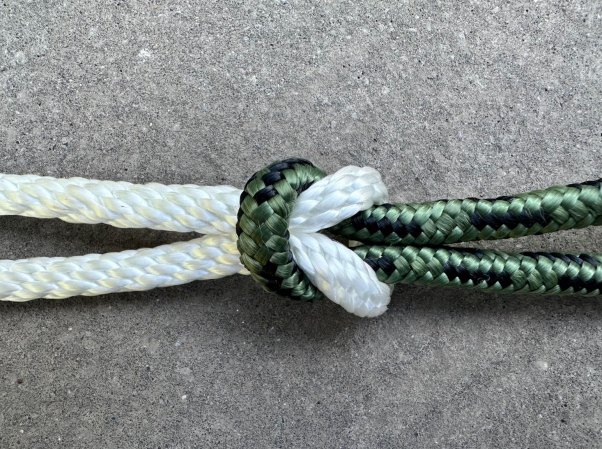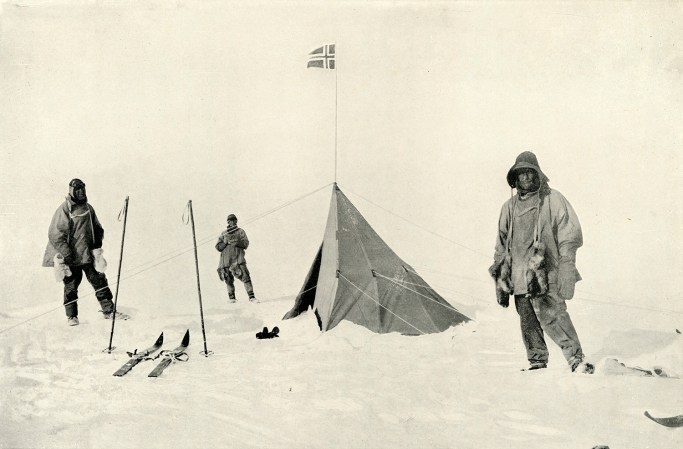We may earn revenue from the products available on this page and participate in affiliate programs. Learn More ›
Anyone who has had a bad stomach flu—or severe morning sickness—knows the human body can survive at least a little while without food. Nourishment is critical, yes, but not as immediately critical as, say, oxygen or water.
A general rule of thumb follows that the average human can go about three to four minutes without oxygen, three to four days without water, and three to four weeks without food. But then come the caveats.
“There are people out there who can hold their breath for seven or nine minutes at a time,” says Dr. Grant Lipman, a former professor of emergency medicine at Stanford University and co-founder of GOES Health, an outdoor health platform.
“You hear stories of hunger strikes that go on for outrageous extents. So there are variations.”
In fact, a British man in 1966 named Angus Barbieri once survived for 382 days with no solid food, consuming only tea, coffee, water, soda water, and vitamins. According to the Guinness Book of World Records, he went from 471 pounds to 178 pounds.
But most of us in survival situations won’t have 382 days to wait for food, nor will we have a store of soda water and vitamins to keep us functioning. There’s also a difference between surviving without food in a temperature-controlled building and surviving without food in the wilderness where nights get cold and the stress of the situation takes a toll.
So while the average human can likely live three to four weeks without food, Lipman says, the details of each circumstance matter. In this article I’ll explain the life-and-death variables in survival situations, as well as what choices you can make ahead of time to keep yourself alive until help arrives.
What Happens When You Go Without Food?
The quick answer to this question is: nothing good. Most of us know from either trying—or watching someone else try—a heavily restricting diet, that when bodies use more calories than they intake they begin burning fat. Fat stores are essentially energy your body tucks away to use when it has to survive without food. The process is called glycolysis, and it’s why you’ve got a few weeks before succumbing. But the timing of starvation depends on how many fat stores you have heading into the experience. Most bodies have some reservoirs to burn and thus time to find food to start eating again.
“It’s basically like being on a Keto diet, except your ketones are coming from your own fat stores,” Lipman says, referring to the popular low-carb, high-fat diet.
Once you churn through those fat reservoirs, the physiological trouble really begins.
“Your body starts breaking down lean muscle, skeletal muscle, connective tissue, heart muscle,” he says. “In a pathologic state, that’s called anorexia. When there are no calories coming in.”
What that means, aside from the loss of some pretty important bodily tissues, is that waste produced while breaking down your own tissues begins to degrade your organs. The combination of that waste and a lack of calories to keep your kidneys, liver, and other organs functioning eventually causes them to shut down, and you die.
Read Next: Best Survival Books
When Do You Stop Thinking Clearly Without Food?
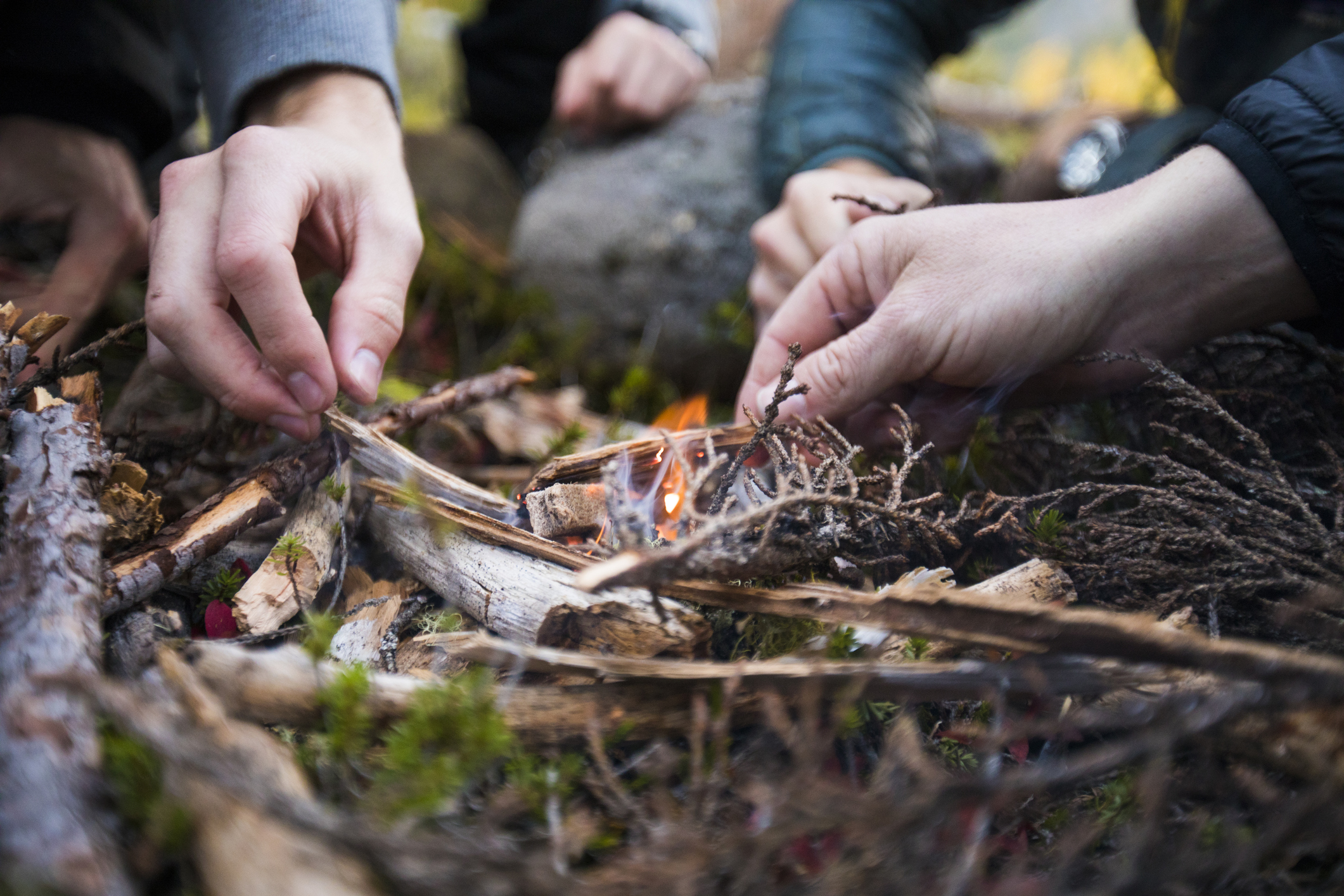
Long before your organs fail from starvation, your brain stops working properly. People on restrictive diets call it brain fog. Endurance athletes call it bonking. It’s when your body doesn’t have enough calories to burn so it starts tapping into fat stores. Without sufficient sugars, your brain can’t make decisions as well or as quickly as it normally does. Why does brain fog matter? Because in a survival situation, your best asset is your ability to think clearly.
“It’s like how a lot of people who die of cold in the backcountry probably don’t die there because they’re cold, they die as hypothermia causes them to make bad decisions and get lost or fall off a cliff,” Lipman says. “The same might be true for starvation.”
At what point that brain fog becomes severe enough to impair your crucial decision-making skills varies from person to person and by the situation.
Read Next: How Long Can You Survive Without Water?
Can You Buy Yourself Time?
The good news is, yes, you can delay the worst impacts of going without food for at least a little while. Keeping warm is one of the most important ways, as is creating some kind of shelter to stay safe from rain, wind, and snow.
It’s a bit of a catch, though, because starvation can also lead to hypothermia.
“If you’ve ever been out camping, and you’re too tired to eat dinner, and you go to bed hungry, you’re going to have the most cold and miserable night of your life,” Lipman says. “Because you don’t have any calories to burn to keep warm.”
The same goes for hypothermia. The longer your body goes without food, the harder it is for your organs to function and your metabolism to provide warmth.
But similarly, the colder you are, the more calories you burn. Shivering, for example, burns more calories than sitting still. This means finding and creating a shelter, then building a fire or even nesting under dry leaves or needles can help delay shivering and, as a result, stave off starvation.
Keeping warm won’t buy you weeks, but in a survival situation, every extra moment counts.
What Foods are Best for Delaying Starvation?
Plenty of backcountry hunters, hikers, and backpackers take foods like jerky into the woods. It’s light, lean, and doesn’t spoil. It’s also not high in fat or carbohydrates, so it won’t actually do you that much good in preventing starvation for long, Lipman says.
Think instead about bringing foods that are high in calories and fat. Lipman, who in addition to being a physician and expert in wilderness medicine has gone on expeditions in big mountains around the globe, prefers a chunk of salami and a big brick of hard cheese. Choose the right ones, and they will stay edible for weeks in your pack. The fat content of both the salami and cheese will help far more than lean meat.
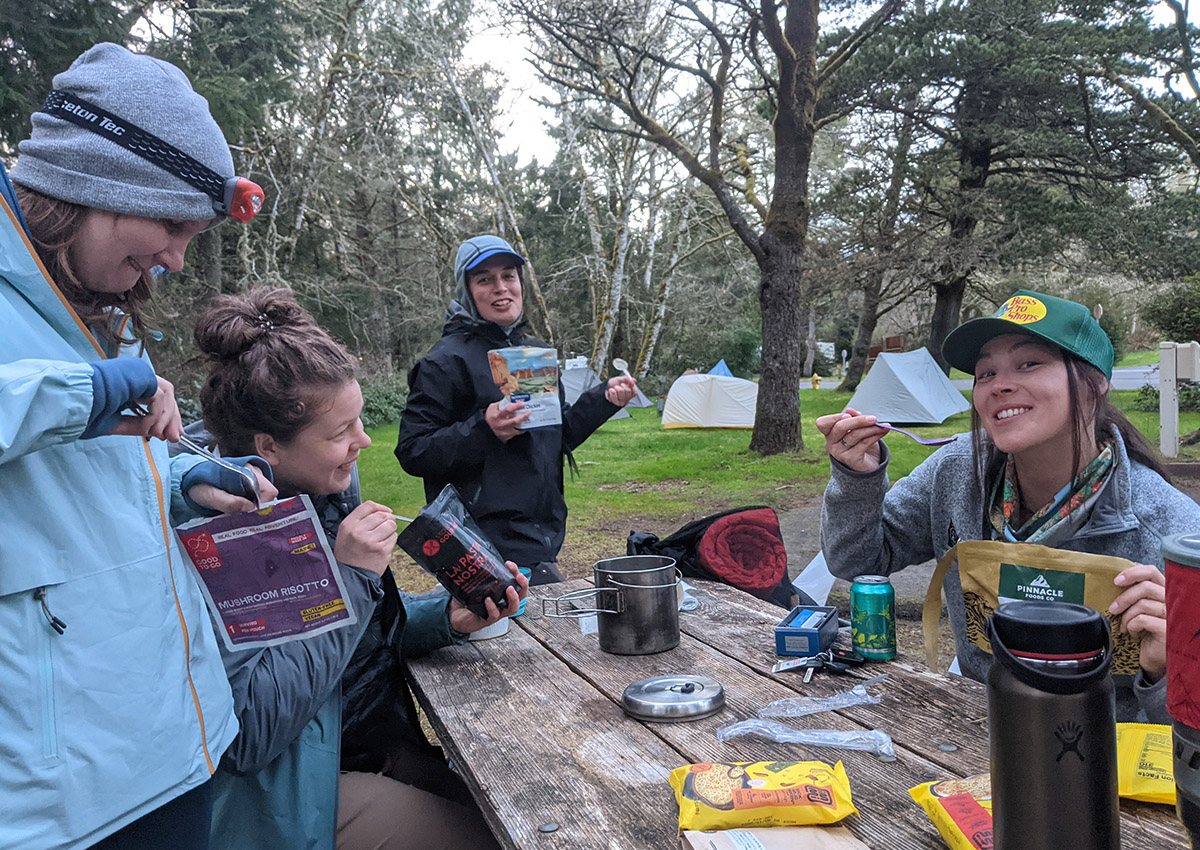
He also brings Snickers bars—citing the combination of sugar from candy and fat and protein from nuts. If another candy bar sounds better to you, he says go for it. A backcountry trip isn’t the time to skip calories by bringing along lean or low-sugar snacks. Lastly, he keeps a dehydrated meal in his pack as emergency rations. But when you buy the best backpacking food, look for the options with the highest calories.
“I gravitate toward comfort foods, things that don’t need a ton of water to break down,” he says. “And that taste good, that your body craves. Salt, sugars, fats, things your body really wants.”
Read Next: Best Survival Foods
Should You Ration Food?
If your supply is limited, and you really aren’t sure when you’ll find help, consider eating only as much food as you need to keep your brain sharp and body able to move.
Should You Eat or Drink Something Dubious?
If you’ve ever watched episodes of Naked and Afraid or Alone, you’ve likely seen people contemplate drinking or eating something no human outside of a desperate situation would ever consider. But when threatened with starvation or dying of thirst, people will look twice at scum-covered puddles or meat that is clearly spoiled.
Lipman doesn’t have a good answer to this one.
“Is it actually going to make you start vomiting so you’re going to lose more fluid and then you accelerate the downward spiral? Or is this going to give you a horrible giardiasis and explosive diarrhea in a week, but at that point, if you’re not found you might be dead anyways?” he says. “It’s hard to say.”
When it comes to foraging plants, mushrooms, nuts, or berries, if you’re not certain that an item is safe and edible, do not eat it.
And when it comes to thirst, there are some things you should never drink including sea water and your own urine.
Urine contains crystals so high in salt that your body will excrete more of its own free water to get rid of the crystals as they filter through your kidneys speeding up dehydration.
“So never drink your own piss.”
Read Next: The Best Backpacking Water Filters
How Important is Finding Food in a Survival Situation?
While staying fed is obviously critical to survival, even more important is creating a shelter and finding fresh water. That’s why most survival experts advise people to bring some kind of water purification system with them into the woods, even if it’s some Aquamira chlorine dioxide or a water bottle that filters like the Katadyn BeFree.
After you have shelter and water, you can focus on finding food.
Read Next: Do You Really Need a Water Filter for Backpacking and Mountain Hunting?
When You Finally Do Find Food, Should You Eat Carefully?
If a person goes without food for days or a week or more, reintroducing it into their system too quickly can be damaging. Paramedics and other medical experts will advise on how much to eat, but if you’ve been without food and suddenly find a cache—whether you caught a fish, killed a critter, or made it back to your car—eat slowly, little bits at a time, over hours. Eating too fast can overwhelm your fragile organs and cause problems of their own.
Final Thoughts on How Long You Can Survive Without Food
A human body can go longer without food than it can without water, and far longer than it can survive without air. Your physical condition as well as how long you can make it outside, in extreme cold or hot temperatures, will also dictate how long you survive. Bring extra food any time you go outside, even for a quick day hike or morning hunt.
And most importantly, if you find yourself lost without food, don’t panic.
“When you hear these amazing survival stories, they’re about people who kept optimism and a positive mindset, and it kept them thinking about the next steps forward on what to do,” Lipman says. “Because when you panic, that’s when you start doing things that can really exacerbate a bad situation.”

